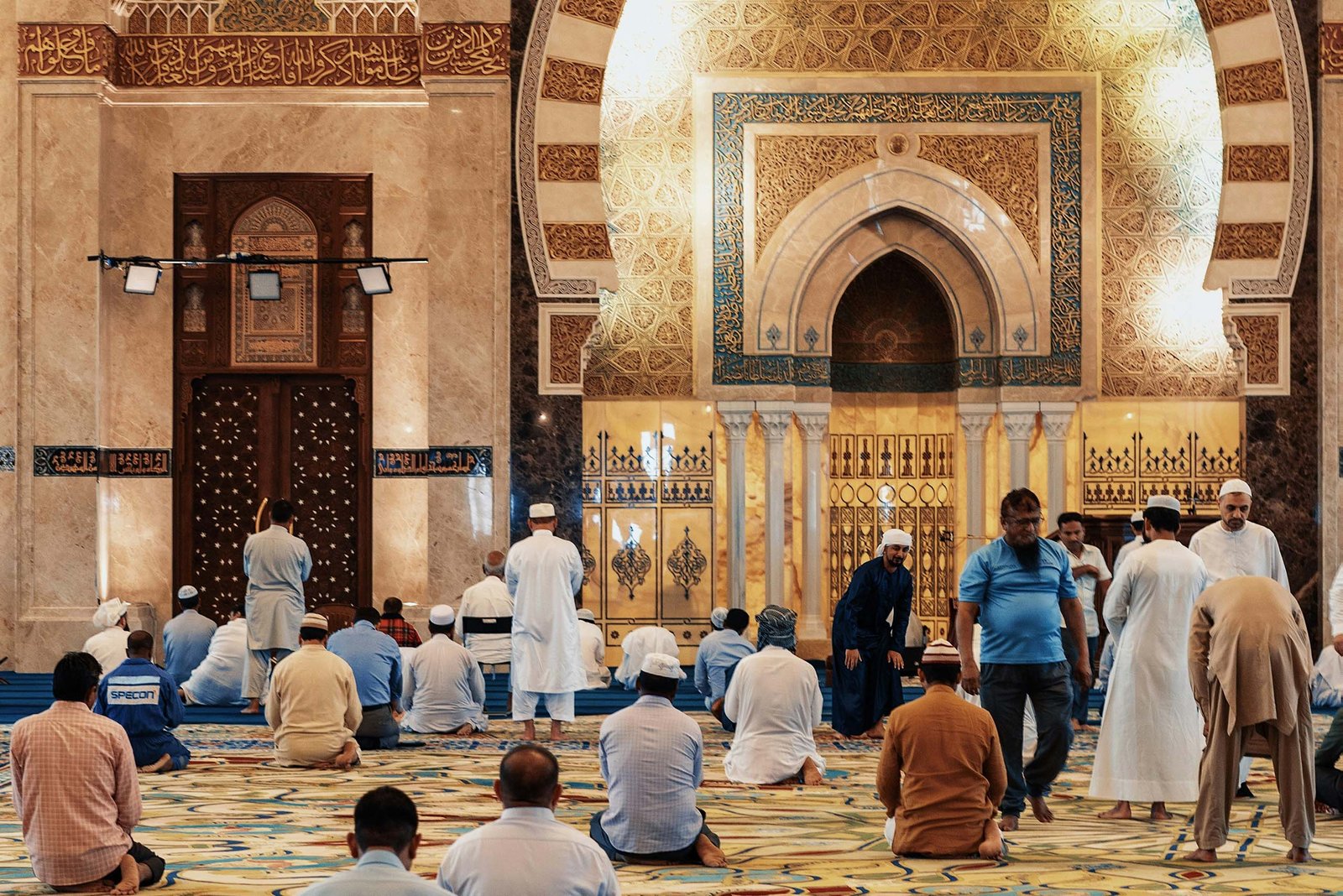
Celebrating Middle East: A Year of Festivals, Traditions, and Flavors
Discover the maior holidays celebrated in the Middle East, their signifcance, traditional celebrations, and iconic foods.
1. Eid al-Fitr (Date varies, based on the Islamic lunar calendar)
– Significance: Marks the end of Ramadan, the holy month of fasting.
– Celebration: Prayers at the mosque, family gatherings, giving gifts (especially to children), and donating to charity (Zakat al-Fitr).
– Food: Sweet dishes like maamoul (filled cookies), dates, and sheer khurma (a milk-based dessert).
2. Eid al-Adha (Date varies, based on the Islamic lunar calendar)
– Significance: Commemorates the willingness of Prophet Ibrahim (Abraham) to sacrifice his son in obedience to God.
– Celebration: Prayers, sacrificing an animal (usually a sheep, goat, or cow), and distributing meat to family, friends, and the needy.
– Food: Meat dishes like kebabs, lamb stews, and grilled meats.
3. Ramadan (Month-long, based on the Islamic lunar calendar)
– Significance: A holy month of fasting, prayer, and reflection for Muslims.
– Celebration: Fasting from dawn to sunset, nightly prayers (Taraweeh), and breaking the fast (Iftar) with family and friends.
– Food: Dates (to break the fast), soups like harira, samosas, and kunafa (a sweet cheese pastry).
4. Mawlid al-Nabi (Date varies, based on the Islamic lunar calendar)
– Significance: Celebrates the birth of the Prophet Muhammad.
– Celebration: Religious gatherings, storytelling, and decorating homes and mosques.
– Food: Sweets like halva, nuts, and special desserts depending on the region.
5. Nowruz (March 20-21, primarily in Iran and Kurdish communities)
– Significance: The Persian New Year, marking the first day of spring and the renewal of nature.
– Celebration: Setting up a Haft-Seen table (with seven symbolic items), visiting family, and jumping over bonfires (Chaharshanbe Suri).
– Food: Sabzi polo ba mahi (herb rice with fish), kuku sabzi (herb frittata), and pastries like baklava.
6. Yom Kippur (Date varies, based on the Jewish lunar calendar, primarily in Israel)
– Significance: The holiest day in Judaism, a day of atonement and fasting.
– Celebration: Fasting, prayer services, and reflection.
– Food: Pre-fast meal often includes challah bread, chicken soup, and kreplach (dumplings).
7. Passover (Date varies, based on the Jewish lunar calendar, primarily in Israel)
– Significance: Commemorates the liberation of the Israelites from slavery in Egypt.
– Celebration: Seder meals, reading the Haggadah, and avoiding leavened bread.
– Food: Matzah (unleavened bread), charoset (a sweet paste), and gefilte fish.
8. Hanukkah (Date varies, based on the Jewish lunar calendar, primarily in Israel)
– Significance: Celebrates the rededication of the Second Temple in Jerusalem and the miracle of the oil.
– Celebration: Lighting the menorah, playing dreidel, and giving gifts.
– Food: Latkes (potato pancakes), sufganiyot (jelly-filled donuts), and fried foods.
9. Coptic Christmas (January 7, primarily in Egypt)
– Significance: Celebrates the birth of Jesus Christ according to the Coptic Orthodox Church.
– Celebration: Church services, family gatherings, and festive meals.
– Food: Fata (a lamb and bread dish), kahk (sweet cookies), and roasted meats.
10. Ashura (Date varies, based on the Islamic lunar calendar)
– Significance: A day of mourning for Shia Muslims, commemorating the martyrdom of Imam Hussein. For Sunni Muslims, it marks the day Moses was saved from Pharaoh.
– Celebration: Processions, reenactments, and charitable acts (Shia); fasting and prayers (Sunni).
– Food: Sweet dishes like ashure (a pudding made with grains, nuts, and dried fruits).
11. National Day (Varies by country)
– Significance: Celebrates the founding or independence of a nation (e.g., Saudi National Day on September 23).
– Celebration: Parades, fireworks, and cultural events.
– Food: Traditional dishes like kabsa (Saudi Arabia), mansaf (Jordan), and mezze platters.
12. Eid al-Mawlid (Date varies, primarily in Shia communities)
– Significance: Celebrates the birth of Imam Ali, a central figure in Shia Islam.
– Celebration: Religious gatherings, poetry recitals, and charitable acts.
– Food: Sweets and traditional dishes shared in community feasts.
